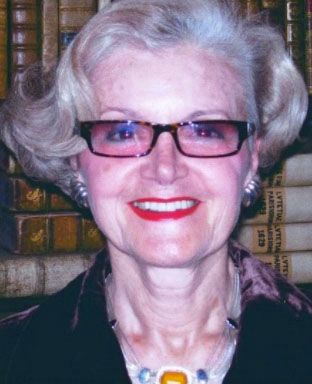ASH Honors Thalia Papayannopoulou With Lifetime Achievement Award in Hematology
The American Society of Hematology (ASH) recently honored Thalia Papayannopoulou, MD, with the Wallace H. Coulter Award for Lifetime Achievement in Hematology in recognition of her innovative contributions to the field of hematology.
Thalia Papayannopoulou, MD

Thalia Papayannopoulou, MD
The American Society of Hematology (ASH) recently honored Thalia Papayannopoulou, MD, with the Wallace H. Coulter Award for Lifetime Achievement in Hematology in recognition of her innovative contributions to the field of hematology.
An active member of ASH, Papayannopoulou’s work has included hemoglobin regulation and stem cell biology, a commitment to patient care, and the mentorship of several generations of hematologists over her 55-year career.
Papayannopoulou was presented with the Wallace H. Coulter award during the 58thASH Annual Meeting and Exposition in San Diego on Sunday, December 4. The award is named for the late Wallace Coulter, a prolific inventor and engineer, best known for developing the Coulter Principle, a method that revolutionized the use of basic blood tests to screen for disease, according to a release from ASH.
The award commemorates Coulter’s innovative spirit, visionary leadership, and entrepreneurship, and it is bestowed on an individual who has demonstrated lifetime achievement and leadership in education, research, mentoring, and practice, according to the release.
Among Papayannopoulou’s contributions to hematology are her work on globin regulation and the role of integrins on stem cell behavior and trafficking. She also described the activation of fetal globin in adult cells in vitro and in vivo under acute stress conditions or during post chemotherapy treatments, paving the way for further exploration of modalities for awakening fetal globin for therapeutic benefit in beta globin disorders.
In addition to her scientific contributions, Papayannopoulou has mentored several generations of hematologists, many of whom have become major leaders in the field.
“Papayannopoulou is a role model, not only because she is an accomplished scientist and strong mentor, but also because she started her career when the barriers for women in academic medicine were formidable, and she overcame these challenges to excel at the highest of levels,” said Charles S. Abrams, MD, president of ASH. “Papayannopoulou is known for her commitment and leadership in hematology. Her passion for the field is evident in the many outstanding hematologists she has mentored, and I am pleased to recognize her as the recipient of the Society’s highest honor.”
Papayannopoulou is an active member of ASH and other societies, including the American Society for Clinical Investigation, Association of American Physicians, International Society for Experimental Hematology (ISEH), International Society for Stem Cell Research. She is also a member of the American Academy of Arts and Sciences.
Papayannopoulou has received many prestigious awards, including ASH’s William Dameshek Prize, Temple University’s Gwendolyn J. Stewart Memorial Award to honor women in the biomedical sciences, the Hellenic Society of Hematology’s Outstanding Lifetime Achievement Award in Hematology, and the Metcalf Award by ISEH. She has also served as a member or chair of several ASH committees. She has served on numerous editorial boards, includingBlood, theAmerican Journal of Hematology, andThe Journal of Clinical Investigation.